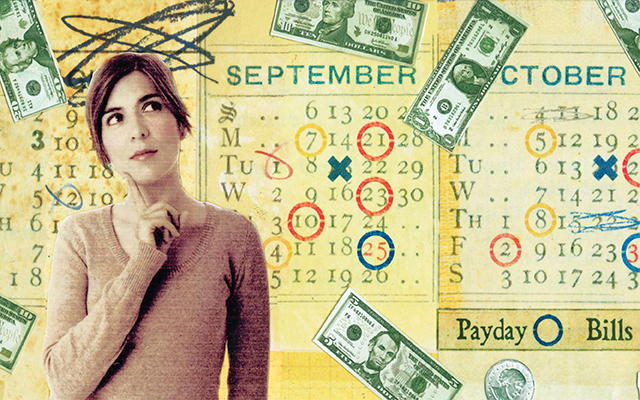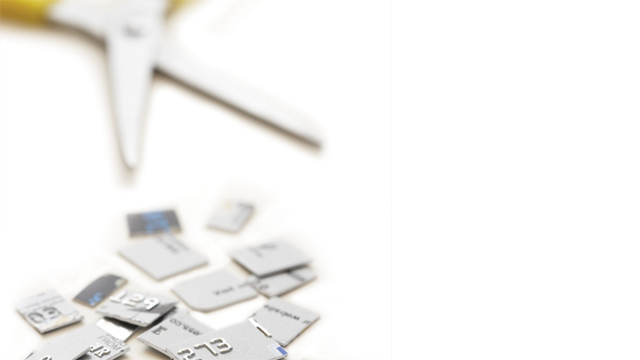Expert Advice: Jean Chatzky is financial editor of the Today show and author of Money 911: Your Most Pressing Money Questions Answered, Your Money Emergencies Solved (Harper Paperbacks, 2009).
It’s the end of the month, and you’re down to your last few bucks, just like last month. It’s baffling: You have a regular paycheck — lucky in this economy — but the way the money runs through your fingers makes you almost as stressed as if you were unemployed. Even as you’ve made more money over the years, you’ve always managed to spend it all, and then some.
Living hand-to-mouth can cause the sort of stress that keeps you up nights. Money expert Jean Chatzky offers a solutions-oriented approach to the problem — one that will make a big difference in your money life and stress level.
Barriers to Overcome
• Financial illiteracy. Many of us just don’t know the money basics. “We didn’t learn in school how to make budgets or track our spending, and except in a few states that mandate some of it, our kids aren’t getting any form of financial education either,” says Chatzky.
• Inherited negative attitudes. Our families may have instilled fear, anger, shame or other forms of discomfort associated with facing money issues. We may also feel demoralized by previous failed attempts to clean up our financial act.
• Instant gratification. Chatzky cites recent research in the new field of behavioral finance that confirms what we’ve known for a long time: “Spending is a lot more fun than saving. The urge for immediate, rather than delayed, gratification is biological.”
• The “why bother” factor. You could save five dollars a month, but it’s hard to believe that such a small sum could ever make a difference. It’s such an insignificant amount that it doesn’t feel real.
• Upwardly mobile spending habits. When you find yourself earning more money, you seem to always find a way to justify spending more, too. You tell yourself that you “deserve” the nicer car, the bigger house, the fancier clothes.
Strategies for Success
• Track your spending. It will make you conscious of how much is going out and for what, says Chatzky. A Web site like www.mint.com, which lets you see all your accounts, transactions and balances on a single Web page, can help.
• Start small and build. Saving — even a very small amount each month — is one of the best ways to go from always feeling broke to seeing evidence of slow but steady progress. Look for savings accounts that don’t require a minimum amount per deposit or transfer, determine how much you can set aside each month, and then go for it. As your income goes up, increase the amount you devote to your savings.
• Make it automatic. When the money disappears into your savings account before you have a chance to spend it, you’ll discover that you barely miss it. Choose a bank or credit union that doesn’t charge for automatic transactions.
• Start where you are. A lot of people put off saving or investing because they’re afraid they don’t know enough about finance. It’s fine to start simple and safe. The biggest mistake you can make is not getting started at all, says Chatzky: “I believe that if you just do it — if you ‘fake it till you make it’ — you get to realize that you can do it, and that makes all the difference.”




This Post Has 0 Comments